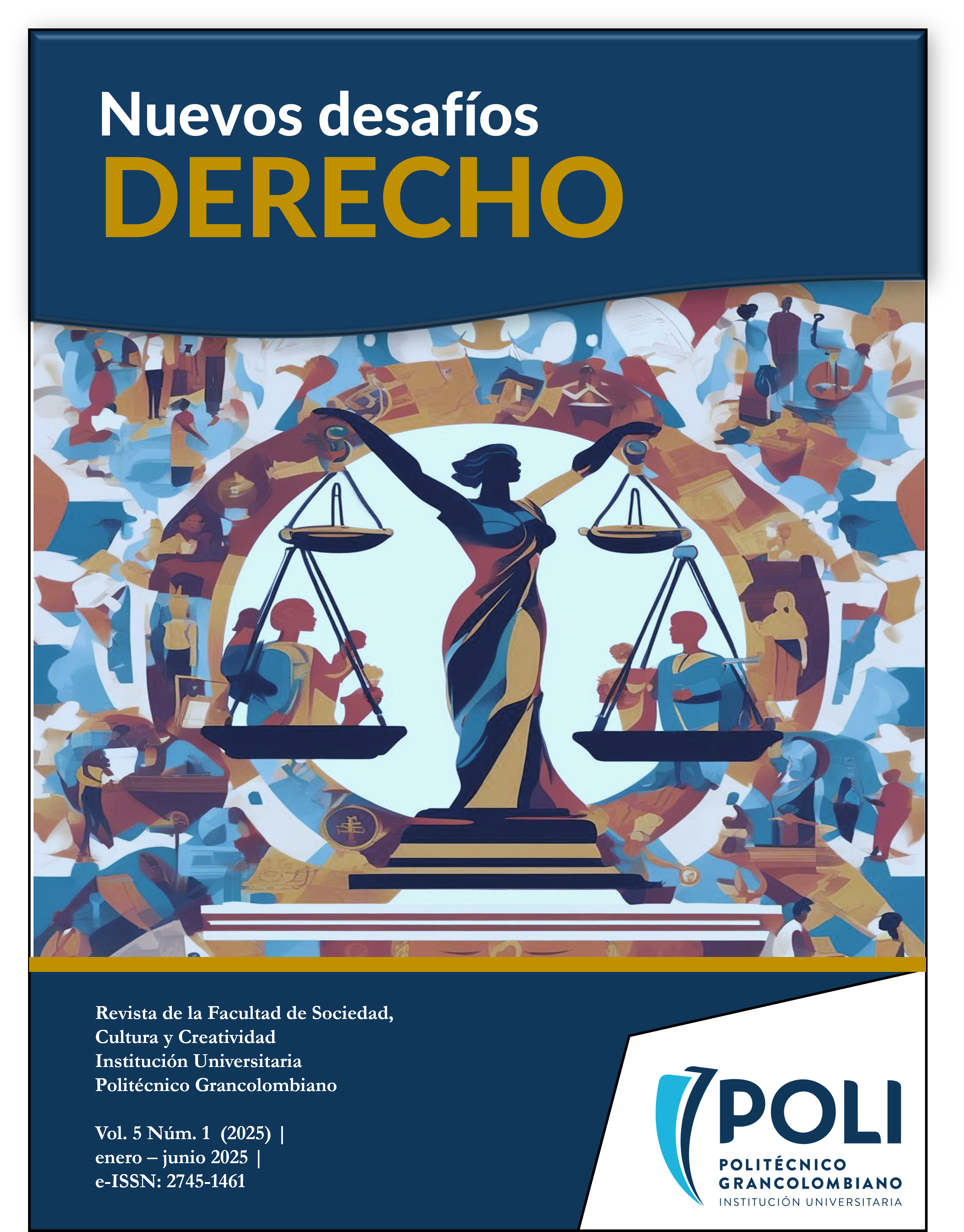Abstract
Through this work, reflection will be made on the impact that the eventual labor reform could have on unions in Colombia, regarding their ability to negotiate individual petition lists. To achieve this, consultation and investigative analysis of national and international authors were employed, using descriptive methodology that involves comparative analysis of the regulation of the principle of negotiation autonomy in Colombia in comparison to other legal frameworks such as Argentina and Mexico.
In general, the results obtained regarding the ability to negotiate individual petition lists in each of the aforementioned countries are as follows: (i) In Colombia, currently, negotiations of petition lists by labor unions mostly occur individually, with some exceptions; (ii) in Argentina, individual negotiation is more frequent than in Colombia, unions have less presence in the country, and employees have more autonomy to negotiate their working conditions; (iii) Similarly, in Mexico, individual negotiation is more common than in Colombia and Argentina, with unions having less presence in the country and employees having more autonomy to negotiate their working conditions. Generally, the results obtained regarding the ability to negotiate individual petition lists in each of the mentioned countries indicate similarities in their negotiation form, largely based on the autonomy of labor unions.
Therefore, we can conclude, based on the arguments outlined here, that an eventual reform affecting the ability to negotiate individual petition lists would have a significant negative impact. As included in the current labor reform articles, aimed at modifying negotiation unity, such changes would weaken the position of unions as employee representatives, leading to greater inequality in labor conditions and making it more difficult for these organizations to advocate for the rights of their members.
References
(OIT), O. I. (s.f.). Obtenido de Libertad sindical: https://www.ilo.org/global/standards/subjects-covered-by-international-labour-standards/freedom-of-association/lang--es/index.htm
(OIT), O. I. (s.f.). Obtenido de Negociación colectiva: https://www.ilo.org/global/standards/subjects-covered-by-international-labour-standards/collective-bargaining/lang--es/index.htm
Acosta Rodríguez, J. E. y Gual Acosta, J. M. (2021). La delimitación de la libertad contractual en virtud de exigencias sociales. Revista IUSTA, (55).https://doi.org/10.15332/25005286.6850
Acuerdo de Negociación Colectiva - Ministerio del trabajo. (s.f.). Obtenido de Gov.co: https://www.mintrabajo.gov.co/relaciones-laborales/acuerdo-de-negociacion-colectiva
Blanco, C & Hernández, C (2023). Causales específicas de procedibilidad de la acción de Tutela contra sentencias evolución Jurisprudencial. Revista Nuevos Desafíos del Derecho. Vol. 3, Núm. 1. https://doi.org/10.15765/rndd.v3i1.4101. Documento extraído el 23 de agosto de 2023 de https://revistas.poligran.edu.co/index.php/desafios/issue/view/444
Cortés Herrera, J. J., García García, F., Torres Archila, A. F., & Valencia Clavijo, F. (2016). Origen y características de la clase obrera en la Revolución Industrial: la deshumanización de la fuerza productiva. Grafías, disciplinares de la UCPR, 18-23. doi:10.31908/grafias.v0i34.1245
Francisco, L. d. (s.f.). La libertad sindical en el mundo del trabajo en Colombia. Obtenido de Universidad Católica de Colombia : https://publicaciones.ucatolica.edu.co/pdf/libertad-sindical.pdf
Gernigon, B., & ODERO y Horacio GUIDO, A. (s.f.). Principios de la OIT sobre la negociació n colectiv. Obtenido de Ilo.org: https://www.ilo.org/public/spanish/revue/download/pdf/gernigon.pdf
Guillermo, G., José, T., Luis, C., & otros. (s.f.). LA LIBERTAD SINDICAL EN ARGENTINA.Obtenido de http://www.derecho.uba.ar/academica/derecho-abierto/archivos/curso-cidct-C2P2-02-GIANIBELLI-CONTRIBUC-1-La-Libertad-Sindical-en-Argentina-Ubacyt.pdf
Herrera, J. J., García, F. G., Archila, A. F., & Clavijo, F. V. (2016). Origen y características de la clase obrera en la Revolución Industrial: la deshumanización de la fuerza productiva. Grafías Disciplinares de la UCPR, 18-23. Obtenido de https://dialnet.unirioja.es/servlet/articulo?codigo=6772868
Holland & Knight. (s.f.). Aspectos relevantes de la última reforma laboral presentada en Colombia. Obtenido de Hklaw.com: https://www.hklaw.com/en/insights/publications/2023/08/aspectos-relevantes-de-la-ultima-reforma-laboral-presentada
Juanita, G., Andrés, H., & Francisco, L. B. (s.f.). Derecho Laboral Colectivo.Obtenido de https://escuelajudicial.ramajudicial.gov.co/sites/default/files/biblioteca/m5-1.pdf
Leyes desde 1992 - Vigencia expresa y control de constitucionalidad CODIGO SUSTANTIVO TRABAJO. (s.f.). Obtenido del Senado de la República de Colombia: http://www.secretariasenado.gov.co/senado/basedoc/codigo_sustantivo_trabajo_pr016.html
Leyes desde 1992 - Vigencia expresa y control de constitucionalidad CONSTITUCION POLITICA 1991. (s.f.). Obtenido del Senado de la República de Colombia: http://www.secretariasenado.gov.co/senado/basedoc/constitucion_politica_1991.html
Negociación colectiva y relaciones laborales. (s.f.). Obtenido de https://www.ilo.org/global/topics/collective-bargaining-labour-relations/lang--es/index.htm
Obrera, E. (s.f.). La negociación colectiva: un principio fundamental, un derecho, un convenio. Obtenido de Ilo.org: https://www.ilo.org/wcmsp5/groups/public/@ed_dialogue/@actrav/documents/publication/wcms_116092.pdf
Rimolo, J. R. (s.f.). Una Mirada Sobre la Negociación. Obtenido de file:///C:/Users/dsanchez/Downloads/Dialnet-UnaMiradaSobreLaNegociacionColectivaEnAmericaLatin-7793014%20(1).pdf
Sadurní, J. M. (2020). La revuelta de Haymarket y los derechos laborales. Natl. Geogr. Mag, National geographic. Obtenido de J. M. Sadurní: https://historia.nationalgeographic.com.es/a/revuelta-haymarket-y-derechos-laborales_15292
Sareth Salazar, S. C. (2020). El movimiento obrero. Obtenido de https://storymaps.arcgis.com/stories/daed02669b254409af5c80647fbab0c3
Villamil Johanna, E. Y. (s.f.). NEGOCIACIONES SINDICALES: ANÁLISIS E IMPACTO. Obtenido de Edu.co: https://repository.universidadean.edu.co/bitstream/handle/10882/3686/Estupi%C3%B1anAndrea2012.pdf?isAllowed=y&sequence=2

This work is licensed under a Creative Commons Attribution-NonCommercial-NoDerivatives 4.0 International License.
Copyright (c) 2024 Nuevos desafíos del Derecho


